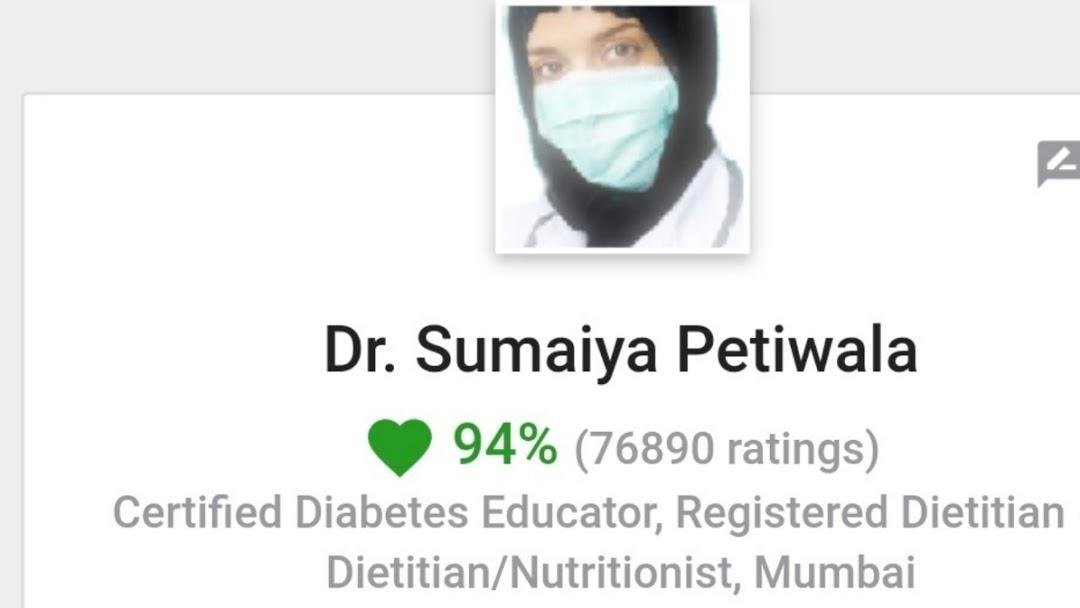Table of Contents
- Eat Mindfully & Chew Thoroughly
- Stay Hydrated
- Increase Fiber Intake
- Probiotics & Prebiotics
- Avoid Overeating & Late Meals
- Manage Stress
- Exercise Regularly
- Avoid Triggers & Choose Healthier
- Monitor Food Intolerances
- Consider Intermittent Fasting
- Seek Dietitian Advice
- FAQ
- Conclusion
Eat Mindfully & Chew Thoroughly
Eating mindfully is one of the most effective strategies to boost digestion and ensure you maximize nutrient absorption. By paying close attention to flavors, textures, and portion sizes, you help your body register satiety cues more accurately. This prevents overeating, which can strain the gastrointestinal tract. Chewing food thoroughly is equally important; when food is broken down into smaller pieces, it becomes easier for digestive enzymes to work efficiently[1]. Moreover, the process of chewing stimulates saliva production, initiating carbohydrate digestion in the mouth.
When you eat on-the-go or rush through meals, your brain often doesn’t have time to register fullness, leading to excess calorie intake. Studies suggest that eating mindfully can also help regulate blood glucose levels by slowing the rate at which carbohydrates are absorbed[2]. This gradual absorption reduces indigestion and prevents the spikes in blood sugar that contribute to discomfort.
Try the following tips for mindful eating:
- Remove distractions like phones or TV during meals.
- Set your fork down between bites to pace yourself.
- Focus on the aroma and taste of each bite.
- Stop eating when you feel satisfied—not overly full.
Combining these practices with a consistent mealtime routine supports the body’s natural hunger and fullness rhythms. If you’re looking to personalize your approach to mindful eating and improve your digestion, consider a consultation at drsumaiya.com/form for individual guidance.
Stay Hydrated
Water is indispensable for almost every bodily function, and digestion is no exception. Proper hydration facilitates the breakdown of food, the absorption of nutrients, and the elimination of waste through regular bowel movements[1][2]. When you’re dehydrated, your body compensates by drawing water from the intestines, which leads to harder stools and can result in constipation. Additionally, limited fluid intake can reduce the efficiency of enzymatic activity in breaking down nutrients.
However, gulping down large amounts of water right before or after meals may dilute stomach acid, potentially slowing digestion. Instead, aim to drink water consistently throughout the day. Some people find it beneficial to sip moderate amounts during meals, while others prefer consuming most of their fluid intake between meal times. Both approaches can be effective, as long as total hydration needs are met.
Consider supplementing your water intake with hydrating, low-sugar beverages like herbal teas or fruit-infused water. These can offer additional flavors without resorting to high-calorie or carbonated drinks that may cause bloating. For a personalized hydration strategy, discuss your specific digestive challenges with our team at drsumaiya.com/form.
Increase Fiber Intake
Dietary fiber is essential for keeping the digestive tract running smoothly. It adds bulk to stool, which promotes regular bowel movements and reduces the likelihood of constipation[1]. Beyond supporting healthy elimination, fiber also plays a role in stabilizing blood sugar and supporting heart health. According to some estimates, most adults only meet about half of the daily recommended fiber intake, highlighting the need for greater awareness[2].
Fruits, vegetables, whole grains, and legumes are excellent sources of fiber. For instance, apples, berries, broccoli, oats, and lentils can be easily incorporated into daily meals. Insoluble fiber helps move food through the digestive system, while soluble fiber forms a gel-like substance that supports bowel regularity and helps maintain healthy cholesterol levels. Combining both types of fiber ensures optimal digestion.
When introducing more high-fiber foods into your diet, do so gradually. Sudden increases in fiber can lead to gas or bloating, as your gut microbiome adapts. Aim for a slow progression of a few extra grams of fiber each week. You can also balance fiber intake by pairing it with adequate fluid consumption.
If digestive discomfort persists or you’re uncertain about the best fiber sources for your lifestyle, consider personalized advice from Dr. Sumaiya’s NutriCare. Fill out a quick assessment at drsumaiya.com/form to get started.
Probiotics & Prebiotics
A balanced gut microbiome is the cornerstone of a healthy digestive system. Probiotics introduce beneficial bacteria, while prebiotics serve as a food source for these good bacteria, helping them flourish. This symbiotic relationship supports nutrient absorption, reduces inflammation in the gut, and strengthens immune defenses[1].
Excellent probiotic sources include yogurt, kefir, kimchi, and sauerkraut— all containing live cultures that can help balance your intestinal flora. Meanwhile, prebiotic-rich foods like bananas, onions, garlic, and artichokes provide the indigestible fibers required to nourish healthy gut bacteria. Studies have shown that a diet rich in both probiotics and prebiotics can alleviate symptoms of irritable bowel syndrome (IBS), reduce bloating, and enhance regularity[2].
However, the balance of gut bacteria can be delicate. Antibiotic use, high stress levels, and a diet high in refined sugars can upset this balance, leading to potential digestive issues. By consciously incorporating probiotic- and prebiotic-rich foods, you support a healthier environment in your gut.
For more individualized guidance on balancing your gut microbiome, schedule a detailed consultation at drsumaiya.com/form.
Avoid Overeating & Late Meals
Overeating places an immediate burden on your stomach and intestines, potentially causing symptoms like discomfort, indigestion, and acid reflux[1]. Large meals require more digestive enzymes and acid to break down the extra volume, which can strain your body’s resources. Splitting your daily intake into smaller, more frequent meals can help stabilize blood sugar, reduce the risk of bloating, and maintain consistent energy levels.
Late-night meals are another concern. When you eat close to bedtime, your body has less time to digest before lying down. This horizontal position can encourage stomach acid to travel upward, causing heartburn or gastroesophageal reflux[2]. It can also interfere with restful sleep, which is critical for processes like cellular repair and hormonal regulation. Experts recommend finishing your last meal at least two to three hours before lights-out.
If you struggle with portion control or late-night munchies, consider planning your meals and snacks ahead of time. Keep lighter, nutrient-dense options on hand, such as veggies with hummus or a small portion of almonds. By opting for smaller, earlier meals, you also give your body ample opportunity to process nutrients efficiently.
For expert suggestions on structuring meal timings and portions, reach out via drsumaiya.com/form.
Manage Stress
Stress has a profound effect on digestion. Chronic stress activates the sympathetic nervous system (the “fight or flight” response), redirecting blood flow away from the digestive tract toward the muscles and brain[1]. This change can slow gut motility, contribute to constipation, or trigger stress-related diarrhea. High stress also impacts the gut-brain axis, potentially exacerbating conditions like IBS or ulcers.
Furthermore, stress can disrupt the microbial balance in the gut, leading to an overgrowth of harmful bacteria. When combined with heightened stomach acid production, symptoms like bloating, gas, and indigestion often worsen. Implementing stress management techniques—such as deep breathing, progressive muscle relaxation, or journaling—helps restore a calmer state for your digestive system[2].
Practical ways to incorporate stress reduction:
- Engage in a short meditation session daily.
- Practice diaphragmatic breathing before meals.
- Explore calming hobbies like art, reading, or nature walks.
- Limit the intake of stimulants like caffeine that may heighten anxiety.
For an in-depth approach to stress management and its impact on digestion, schedule a consultation at drsumaiya.com/form.
Exercise Regularly
Regular physical activity does more than build strength and endurance—it significantly influences your digestive health. Movement stimulates gut motility, helping food pass through the gastrointestinal tract more efficiently[1]. This reduces the chance of constipation or bloating. Exercise also promotes better circulation, ensuring nutrients are distributed properly and waste products are removed effectively.
Aerobic exercises, such as brisk walking, jogging, swimming, or cycling, raise the heart rate and encourage deeper breathing, which in turn massages the internal organs and optimizes digestion. Even low-intensity activities like yoga or gentle stretches after meals can help alleviate gas and encourage bowel regularity[2]. Consistency is key, so aim for at least 30 minutes of moderate-intensity exercise most days of the week.
If you’re new to regular physical activity, start with short, simple activities like walking around the block after meals. Gradually increase the duration or intensity as your fitness improves. Equally important is choosing exercises you enjoy, as this boosts compliance and transforms exercise from a chore into a sustainable lifestyle habit.
For personalized exercise strategies tailored to your digestive concerns, consider filling out the form at drsumaiya.com/form.
Avoid Triggers & Choose Healthier
Certain foods are well-known triggers for digestive discomfort. Fried and fatty foods can slow digestion, spicy dishes may irritate the stomach lining, and carbonated drinks often cause bloating[1]. While not everyone is affected by the same triggers, it’s crucial to identify the foods that cause you problems and limit them accordingly. Keeping a food diary is an excellent first step toward understanding your individual triggers.
Fortunately, many healthier alternatives exist. Instead of frying, try baking, grilling, or steaming. Swap overly spicy meals for dishes flavored with digestive-friendly herbs like oregano or rosemary. Choose non-caffeinated beverages such as herbal teas or infused water over carbonated sodas. These small, mindful substitutions offer a big payoff in terms of comfort and long-term health[2].
Experiment with flavor enhancers like fresh herbs, garlic, ginger, or lemon zest to make healthier dishes more appealing. Meal prepping can also help you plan balanced, trigger-free meals ahead of time, reducing the temptation to opt for quick but irritating foods. If you need further support identifying and reducing trigger foods, drsumaiya.com/form is available for personalized advice.
Monitor Food Intolerances
Food intolerances can significantly affect digestion, manifesting as bloating, diarrhea, constipation, abdominal pain, nausea, or fatigue[1]. Unlike food allergies, which involve an immune response, intolerances generally relate to deficiencies in enzymes needed to break down specific foods, or adverse reactions to certain components of food. Common examples include lactose intolerance, gluten intolerance, and sensitivity to specific additives or preservatives.
Keeping a detailed food journal is invaluable in pinpointing potential intolerances. Record what you eat, when you eat it, and any digestive symptoms that arise. Over time, patterns may emerge, clarifying which foods trigger discomfort. Once identified, an elimination diet helps confirm the intolerances by systematically removing and reintroducing the suspected triggers[2].
If you suspect a food intolerance, consider professional evaluation for a comprehensive diagnosis. Our team at Dr. Sumaiya’s NutriCare can guide you in customizing your diet to manage or avoid intolerances while maintaining overall nutritional balance. Begin your journey with a quick assessment at drsumaiya.com/form.
Consider Intermittent Fasting
Intermittent fasting involves alternating between eating periods and fasting windows, giving the digestive system regular breaks to reset. Many people report reduced bloating, improved bowel regularity, and enhanced energy levels when practicing structured fasting[1]. During fasting phases, the body can focus on cellular repair and maintenance, which may lead to better gut health over time.
Although there are various fasting methods—like the 16:8 approach (fast for 16 hours, eat within an 8-hour window) or the 5:2 plan (normal eating for five days, reduced calorie intake for two)—they share similar digestive benefits. Specifically, they can help in balancing hormones related to hunger and satiety, reducing overeating, and potentially improving insulin sensitivity[2]. However, it’s essential to continue consuming nutrient-dense foods and staying hydrated during eating windows.
It’s also crucial to listen to your body. If you experience dizziness, severe hunger, or gastrointestinal distress, you might need to adjust your fasting schedule. People with certain medical conditions or those who are pregnant or lactating should consult a healthcare professional before attempting intermittent fasting. For personalized guidance, fill out the form at drsumaiya.com/form.
Seek Dietitian Advice
While many digestive issues can be addressed through lifestyle changes, some symptoms may indicate more serious health concerns. Persistent abdominal pain, unexplained weight loss, chronic diarrhea or constipation, or the presence of blood in the stool should never be ignored[1]. Early professional intervention can prevent complications and help you manage the root cause more effectively.
At Dr. Sumaiya’s NutriCare, we prioritize a holistic approach. Our team evaluates factors like your dietary habits, stress levels, exercise routine, and existing medical conditions to develop a customized plan. This comprehensive perspective helps identify subtle interactions that may exacerbate digestive problems, ensuring a thorough, tailored solution.
Don’t wait for minor digestive issues to turn into chronic conditions. If you have ongoing concerns about gut health or nutrition, initiating a detailed consultation can offer clarity and targeted strategies. Start your journey today by filling out our simple form at drsumaiya.com/form.
FAQ
Q1: How can stress management specifically impact digestive health? Stress management helps maintain a more balanced digestive system by reducing the “fight or flight” response and restoring normal gut motility[1]. Chronic stress diverts blood flow away from the digestive tract, potentially leading to bloating or constipation. Incorporating practices like mindfulness or deep breathing can mitigate these effects.
Q2: What are some common symptoms of food intolerances that might affect digestion? Signs include bloating, diarrhea, constipation, abdominal pain, nausea, and fatigue[1][2]. Keeping a food diary can help identify triggers, which can then be reduced or removed to alleviate symptoms.
Q3: Can herbal teas or supplements improve digestion, and if so, which ones are most effective? Yes. Options like ginger, peppermint, and chamomile teas can soothe the intestinal tract and reduce inflammation. Probiotic supplements introduce beneficial bacteria, while digestive enzymes enhance nutrient breakdown[1]. Always consult a healthcare professional before starting any supplement regimen.
Q4: What lifestyle changes can be implemented to reduce bloating and improve digestion naturally? Effective changes include eating smaller, more frequent meals, chewing food thoroughly, avoiding carbonated drinks, and staying well-hydrated[2]. Regular physical activity, especially walking, also helps stimulate bowel movements and reduce excess gas.
Q5: How does the balance of gut bacteria influence overall digestive health, and what can be done to maintain it? A balanced gut microbiome aids nutrient absorption, supports immune function, and protects against harmful pathogens[1]. Consuming probiotic-rich foods, maintaining a diverse diet with ample prebiotics, and limiting antibiotic overuse are key strategies for preserving healthy gut flora.
Q6: Are there specific foods that should be avoided to prevent indigestion, and what are healthier alternatives? Yes. Fried and fatty foods, spicy dishes, citrus fruits, caffeine, and carbonated drinks are common triggers of indigestion[2]. Instead, opt for baked or steamed foods, milder seasonings, fruits like bananas or melons, and herbal teas or water infused with fruits.
Q7: How does exercise influence digestion, and what types of exercise are most beneficial for digestive health? Regular exercise can boost gut motility, alleviate bloating, and improve blood flow to digestive organs[1]. Aerobic activities like walking, swimming, or cycling are especially beneficial, as are gentle yoga routines that incorporate twists and forward bends.
Q8: What role does sleep play in digestion, and how can improving sleep habits lead to better digestive outcomes? Quality sleep allows the body to repair tissues and regulate hormones related to appetite and digestion. Poor sleep can disrupt these processes, leading to acid reflux or constipation[2]. Maintaining a consistent sleep schedule and avoiding heavy meals or caffeine before bed can significantly enhance digestive health.
Q9: Can intermittent fasting positively impact digestion, and what are the best practices to follow for it? Intermittent fasting gives the digestive system a break, potentially reducing bloating and improving overall gut health[1]. Choose a fasting schedule that suits your lifestyle and stay well-hydrated. Focus on nutrient-dense foods during eating windows and refrain from fasting if you experience severe discomfort.
Q10: What are some signs that poor digestion might be linked to a more serious health issue, and when should one seek medical advice? Indicators include ongoing abdominal pain, unexplained weight loss, chronic changes in bowel habits, severe heartburn, and blood in stool[2]. If you experience these symptoms or if they interfere with daily life, seek professional evaluation promptly.
Conclusion
A healthy digestive system is foundational to overall well-being, influencing everything from energy levels to immune function. By implementing mindful eating habits, staying adequately hydrated, and focusing on nutrient-dense foods, you fortify your gut’s ability to process and absorb essential nutrients. Stress management, regular exercise, and good sleep further enhance gastrointestinal efficiency, reducing issues like bloating, constipation, and heartburn.
Recognizing food intolerances and avoiding trigger foods can spare you chronic discomfort, while approaches like intermittent fasting provide structured breaks that may revitalize the digestive process. However, it’s important to remember that persistent or severe symptoms warrant professional attention to rule out underlying health concerns. Early intervention can be crucial in preventing complications and restoring optimal digestive function.
At Dr. Sumaiya’s NutriCare, we’re committed to helping you achieve the best possible results through a personalized, holistic approach. If you have ongoing concerns or simply want to optimize your digestive health further, do not hesitate to reach out. Take the next step by visiting drsumaiya.com/form and discover how tailored dietary and lifestyle strategies can make a profound difference in your daily comfort and long-term wellness.
References
- Mindful Eating: The Health Benefits of Mindful Eating – Michigan State University Extension
- Hydration and Digestion: Hydration and Digestion: The Essential Connection – Prime Scholars
- Dietary Fiber Intake and Gut Microbiota: Dietary Fiber Intake and Gut Microbiota in Human Health – PMC




